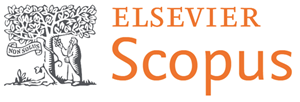Publication Ethics and Malpractice
Code of Publication Ethics and Malpractice
1. Introduction
Built Environment Journal (BEJ) adheres to the highest standards of publication ethics and takes all possible measures against publication malpractice. The editorial board, reviewers, authors, and editors involved in the publication process are expected to comply with the ethical behavior as outlined by the Committee on Publication Ethics (COPE). BEJ is committed to maintaining the integrity of the academic record and ensuring ethical oversight in all aspects of its publication process.
2. Duties of Editors
Fair Play
Editors evaluate manuscripts solely based on their academic merit and relevance to the journal’s scope, without regard to authors’ race, gender, sexual orientation, religious belief, ethnic origin, citizenship, or political philosophy.
Confidentiality
Editors must maintain confidentiality concerning all submitted manuscripts and must not disclose any information to anyone other than the corresponding author, reviewers, or other editorial advisers as appropriate.
Disclosure and Conflicts of Interest
Editors will not use unpublished information disclosed in a submitted manuscript for their own research purposes without the author’s explicit written consent. Editors should recuse themselves from handling manuscripts in which they have conflicts of interest.
Decision on Publication
Editors are responsible for deciding which of the submitted articles should be published, based on the paper’s importance, originality, clarity, validity, and relevance to BEJ’s scope.
Handling Allegations of Misconduct
Editors will take reasonable steps to identify and prevent the publication of papers where research misconduct has occurred, including plagiarism, citation manipulation, and data falsification or fabrication. If misconduct is suspected, editors will follow COPE guidelines to address the issue.
3. Duties of Reviewers
Contribution to Editorial Decision
Peer review assists the editor in making editorial decisions and helps the author to improve the manuscript.
Promptness
Reviewers who feel unqualified to review a manuscript or are unable to provide a prompt review should notify the editor and withdraw from the review process.
Confidentiality
Manuscripts received for review must be treated as confidential documents and must not be disclosed or discussed with others except as authorized by the editor.
Objectivity
Reviews should be conducted objectively and constructively. Personal criticism of the author is inappropriate.
Acknowledgement of Sources
Reviewers should identify relevant published work that has not been cited by the authors and should alert the editor to any substantial similarity or overlap between the manuscript and any other published work.
Conflicts of Interest
Reviewers should not review manuscripts in which they have conflicts of interest resulting from competitive, collaborative, or other relationships with any of the authors or institutions connected to the papers.
4. Duties of Authors
Reporting Standards
Authors should present an accurate account of their work and its significance, with sufficient detail and references to permit others to replicate the work.
Originality and Plagiarism
Authors must ensure that their work is entirely original and must properly cite the work and words of others. All manuscripts will be screened for plagiarism using appropriate software, i.e., Turnitin.
Multiple, Redundant or Concurrent Publication
Authors should not publish manuscripts describing essentially the same research in more than one journal or primary publication.
Authorship of the Paper
Authorship should be limited to individuals who have made a significant contribution to the conception, design, execution, or interpretation of the reported study. All authors should approve the final version of the paper and agree to its submission.
Disclosure and Conflicts of Interest
All authors should disclose any financial or other substantive conflicts of interest that might influence the results or interpretation of the manuscript.
Fundamental Errors in Published Works
When an author discovers a significant error or inaccuracy in their published work, it is their obligation to promptly notify the editor and cooperate to retract or correct the paper.
Data Access and Retention
Authors may be asked to provide the raw data supporting their findings for editorial review and should be prepared to provide public access to such data, where appropriate, and retain such data for a reasonable time after publication.
Ethical Approval for Research Involving Humans or Animals
If the work involves human participants or animals, authors must ensure that the research has been conducted in accordance with relevant institutional and national ethical guidelines and that appropriate ethical approval has been obtained. Evidence of such approval must be provided upon request.
Use of Artificial Intelligence and Third-party Services
If AI tools (e.g., language models) or third-party editorial services were used during manuscript preparation, authors must clearly acknowledge their use in the manuscript.
5. Publisher’s Responsibilities
The publisher of BEJ is committed to ensuring that editorial decisions are based only on academic merit and that ethical standards are upheld. The publisher works closely with editors, authors, and reviewers to maintain transparency, to manage conflicts of interest, and to address any allegations of misconduct following COPE's core practices.
The publisher also supports post-publication corrections, including issuing corrections, retractions, or expressions of concern where necessary.
6. Ethical Oversight
BEJ ensures ethical oversight in all aspects of its publication process. Allegations of misconduct, unethical research practices, or other violations will be taken seriously and investigated following COPE guidelines. Disciplinary or corrective actions may include retractions, corrections, or bans on future submissions.
7. Complaints and Appeals
BEJ provides a mechanism for handling complaints about the publication process. Appeals regarding editorial decisions or concerns about ethical misconduct can be submitted to the Editor-in-Chief for formal review. All appeals will be handled fairly, promptly, and transparently.
8. Post-Publication Discussions and Corrections
BEJ encourages responsible discussion of published content. Where errors are found, the journal will issue corrections, retractions, or expressions of concern in accordance with COPE standards to maintain the integrity of the academic record.











